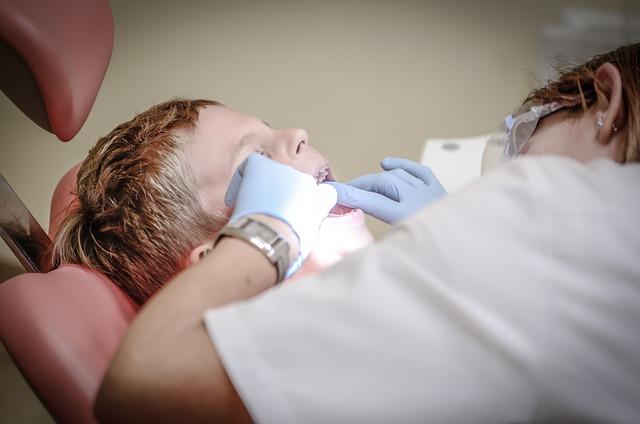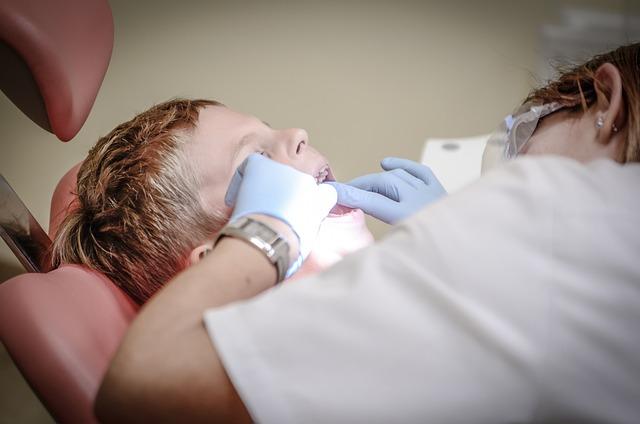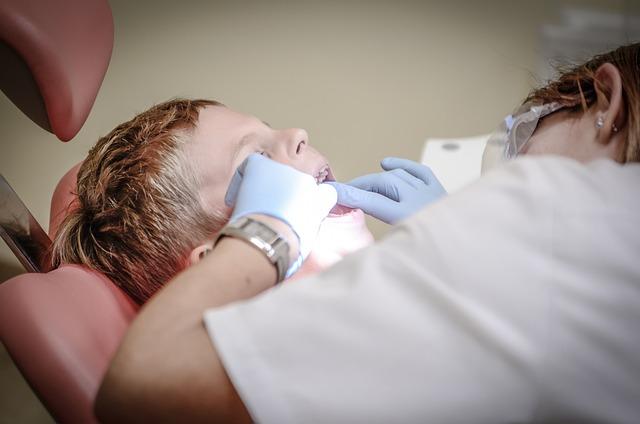Can You Gargle with Salt Water After a Tooth Extraction?
In the realm of dental care, proper post-extraction care plays a vital role in ensuring a smooth and speedy recovery. One common question that often arises is whether gargling with salt water is a safe and effective practice after a tooth extraction. With a confident and knowledgeable approach, we will delve into this topic, shedding light on the benefits, potential risks, and best practices associated with gargling salt water to aid in your decision-making process. So, let’s explore the answers to this burning question and empower you with the necessary information for a seamless post-extraction journey.
1. Understanding the Importance of Post-Tooth Extraction Care
After undergoing a tooth extraction procedure, it is crucial to understand the significance of post-operative care to promote optimal healing and minimize complications. Following these essential guidelines will help ensure a smooth recovery and prevent any setbacks:
- Properly manage bleeding: Gently bite down on a clean gauze pad placed over the extraction site to control bleeding. Replace the pad as needed, and avoid excessive spitting or rinsing to prevent dislodging the blood clot.
- Take prescribed medications: Follow your dentist’s instructions regarding painkillers or antibiotics to alleviate discomfort and prevent infection. Take the prescribed dosage at the recommended intervals for the specified duration.
- Maintain oral hygiene: Continue brushing and flossing your teeth, but be cautious around the extraction area to avoid irritation. Rinse your mouth gently with warm saltwater after the first 24 hours to reduce swelling and keep the area clean.
- Opt for soft foods: Stick to a soft diet for the initial few days after extraction. Incorporate easily chewable foods such as yogurt, mashed potatoes, or soups. Avoid hot and spicy foods, as well as using a straw, which may dislodge the blood clot.
- Avoid strenuous activities: Engaging in intense physical activities or exercises can increase blood flow and potentially disrupt the healing process. Rest and take it easy for at least 24 hours after the extraction.
By following these post-tooth extraction care instructions diligently, you can ensure a smooth recovery and minimize the risk of complications. Remember to reach out to your dentist if you experience severe pain, excessive bleeding, or any concerns during the healing process.

2. Exploring the Benefits of Gargling with Salt Water After a Tooth Extraction
Salt water gargling has long been recommended by dentists as an effective post-tooth extraction remedy. Here are some of the benefits associated with this simple yet powerful practice:
1. Reduces swelling and inflammation: Gargling with salt water helps to soothe the surgical site, reducing swelling and inflammation. The warm saline solution acts as a natural antiseptic, promoting healing and preventing the growth of harmful bacteria.
2. Alleviates pain and discomfort: Salt water gargling provides temporary relief from pain and discomfort after a tooth extraction. The mild saline solution helps to numb the area, providing a soothing effect and reducing the intensity of pain.
3. Promotes faster healing: The antiseptic properties of salt water aid in the healing process by keeping the extraction site clean and free from infection. It also helps to remove any food particles or debris that may have accumulated, minimizing the risk of complications such as dry socket.
4. Prevents bacterial growth: Salt water gargling creates an inhospitable environment for bacteria, reducing the risk of infection. Regular gargling helps to flush out any bacteria that may have entered the mouth during the extraction procedure, preventing potential complications.
To prepare a salt water solution, simply dissolve half a teaspoon of salt in a glass of warm water. Gargle with this mixture for 30 seconds, ensuring that it reaches the affected area. Repeat the process 2-3 times a day, especially after meals, for optimal results. Remember, salt water gargling should not replace proper oral hygiene practices, but rather complement them to promote a speedy recovery after a tooth extraction.
3. Step-by-Step Guide: How to Safely Gargle with Salt Water After a Tooth Extraction
Salt water gargling is a simple yet effective way to promote healing and reduce the risk of infection after a tooth extraction. Follow these step-by-step instructions to ensure you’re performing the procedure safely:
1. Prepare the salt water solution: Dissolve half a teaspoon of salt in a cup of warm water. Make sure the water is not too hot to avoid any discomfort.
2. Take a small sip of the salt water solution and tilt your head back slightly. Let the liquid pool in your mouth without swallowing it.
3. Gently swish the salt water around your mouth, ensuring it reaches all areas, especially the extraction site. Be careful not to gargle forcefully, as this may disrupt the blood clot that forms to aid in healing.
4. Continue gargling for about 30 seconds to one minute, making sure to cover all surfaces of your mouth.
5. Spit out the salt water into a sink or basin. Do not swallow the solution, as it may contain bacteria or debris from the extraction site.
6. Repeat the gargling process 2-3 times a day, particularly after meals, for the first few days following the extraction. Gradually reduce the frequency as your healing progresses.
Remember, salt water gargling is not a substitute for proper oral hygiene. Continue to brush your teeth gently and avoid vigorous rinsing or using mouthwash for the first 24 hours after the extraction. If you experience severe pain, excessive bleeding, or any other concerns, contact your dentist for further guidance.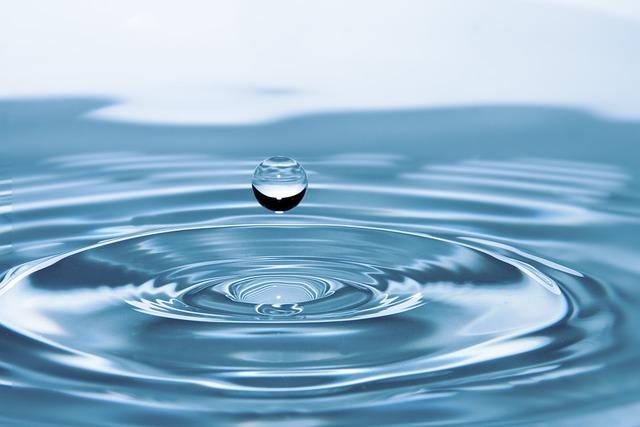
4. Salt Water Gargle: A Natural Solution for Post-Extraction Healing
After a tooth extraction, it’s crucial to take proper care of the wound to ensure a smooth healing process. One natural and effective solution for post-extraction healing is a salt water gargle. This simple remedy can help alleviate pain, reduce inflammation, and prevent infection.
To prepare a salt water gargle, dissolve half a teaspoon of salt in a cup of warm water. Make sure the water is not too hot to avoid discomfort. Gently swish the solution around your mouth for about 30 seconds, focusing on the area of the extraction. Spit it out and repeat this process 2-3 times a day, especially after meals, for optimal results.
The benefits of salt water gargles for post-extraction healing are numerous:
- Pain relief: The warm saline solution can soothe the wound, providing relief from any discomfort or pain.
- Inflammation reduction: Salt water gargles help reduce swelling and inflammation around the site of the extraction.
- Antibacterial properties: Salt acts as a natural disinfectant, killing bacteria and preventing infection.
- Wound cleansing: The gentle swishing motion of the gargle helps remove debris and food particles, promoting a clean healing environment.
Remember to consult with your dentist before starting any post-extraction care routine. Although salt water gargles are generally safe, your dentist can provide personalized advice based on your specific needs. Incorporating this natural solution into your healing process can contribute to a faster and more comfortable recovery.
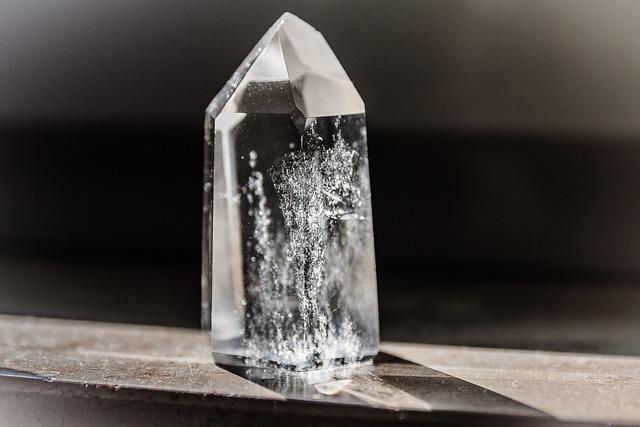
5. The Healing Properties of Salt Water: How It Promotes Recovery After Tooth Extraction
Salt water, also known as saline solution, has been used for centuries as a natural remedy for various health conditions. When it comes to promoting recovery after tooth extraction, salt water can be particularly beneficial. Here are the healing properties of salt water that make it an effective solution for post-extraction care:
- Antibacterial properties: Salt water acts as a natural disinfectant, killing harmful bacteria that may be present in the mouth. Rinsing with salt water helps prevent infection and reduces the risk of complications.
- Reduces inflammation: Salt water has anti-inflammatory properties that can help reduce swelling and inflammation around the extraction site. This can alleviate discomfort and promote faster healing.
- Promotes blood clotting: Salt water rinses encourage the formation of blood clots, which are essential for proper wound healing. It helps protect the extraction site and prevents dry socket, a painful condition that can occur when the blood clot dislodges.
Using salt water for post-tooth extraction care is simple. Dissolve half a teaspoon of salt in a cup of warm water, then gently swish the solution around your mouth for about 30 seconds before spitting it out. Repeat this rinse two to three times a day, especially after meals, to keep the extraction site clean and promote a speedy recovery.
6. Debunking Myths: Is Gargling with Salt Water Safe After a Tooth Extraction?
There are several misconceptions surrounding the practice of gargling with salt water after a tooth extraction. Let’s delve into the facts and debunk these myths:
- Myth 1: Salt water can cause infection or delay the healing process.
- Myth 2: Salt water can be harsh on the gums and cause irritation.
- Myth 3: Gargling with salt water is unnecessary and has no real benefits.
Fact: On the contrary, gargling with salt water is actually a safe and effective method to promote healing after a tooth extraction. The saline solution helps cleanse the area, reducing the risk of infection by eliminating harmful bacteria. Additionally, salt water can help soothe any discomfort or swelling, aiding in the healing process.
Fact: When prepared properly, salt water is gentle on the gums and does not cause irritation. It is essential to use the correct ratio of salt to water, typically one teaspoon of salt in eight ounces of warm water, to ensure a balanced and soothing solution. Gently swishing the salt water in your mouth, without applying excessive pressure, will provide the desired benefits without any adverse effects.
Fact: Gargling with salt water can offer numerous benefits after a tooth extraction. It helps keep the extraction site clean, reducing the risk of infection. The salt water solution also acts as a natural antiseptic, aiding in the removal of any debris or food particles that may be trapped in the area. Moreover, it provides temporary relief from pain and swelling, promoting a more comfortable healing process.
By debunking these myths, it is clear that gargling with salt water is not only safe but also beneficial after a tooth extraction. However, it is always crucial to follow your dentist’s instructions and consult with them if you have any concerns or specific post-extraction care instructions.
7. Expert Advice: Dentists’ Recommendations on Gargling with Salt Water After a Tooth Extraction
After a tooth extraction, gargling with salt water can aid in the healing process and reduce the risk of infection. Dentists highly recommend this simple and effective home remedy. Here are some expert recommendations to ensure you do it correctly:
1. Use the right solution: Dissolve half a teaspoon of salt in eight ounces of warm water. This concentration is optimal for killing bacteria without irritating your mouth.
2. Timing is key: Wait at least 24 hours after the extraction before starting saltwater rinses. This allows the blood clot to form and stabilize, promoting healing.
3. Gently swish and spit: Take a small sip of the saltwater solution and swish it around your mouth for 30 seconds. Be careful not to vigorously rinse or spit forcefully, as this may dislodge the blood clot.
4. Frequency matters: Repeat the gargling process two to three times a day, especially after meals and before bedtime. Regular rinsing helps keep the extraction site clean and reduces the risk of infection.
5. Maintain oral hygiene: While saltwater rinses are beneficial, they should not replace regular brushing and flossing. Continue to maintain your oral hygiene routine, being extra gentle around the extraction site.
By following these expert recommendations, you can promote healing and minimize discomfort after a tooth extraction. If you have any concerns or experience unusual symptoms, it’s always best to consult your dentist for personalized advice.
8. Understanding the Potential Risks and Limitations of Salt Water Gargle After a Tooth Extraction
After a tooth extraction, salt water gargle can be a beneficial part of your postoperative care routine. However, it is important to be aware of the potential risks and limitations associated with this practice. By understanding these factors, you can make informed decisions about your oral hygiene regimen and ensure a smooth recovery process.
Potential Risks:
- Excessive force: Vigorous gargling with salt water can potentially dislodge the blood clot that forms in the extraction site, leading to a condition called dry socket. This can delay healing and cause intense pain.
- Overuse: While salt water gargle can help cleanse the mouth and reduce bacteria, excessive use can disrupt the delicate balance of natural oral flora, potentially leading to oral health issues.
- Allergic reactions: Some individuals may be allergic to salt or experience irritation from the saline solution, resulting in discomfort or swelling.
Limitations:
- Inadequate cleansing: Salt water gargle may not effectively remove food particles or debris from the extraction site, requiring additional methods such as gentle brushing or rinsing with an antiseptic mouthwash.
- Minimal pain relief: While salt water gargle can provide temporary relief from mild discomfort, it may not be sufficient for managing more severe pain after a tooth extraction. Consult with your dentist for appropriate pain management options.
9. Enhancing Your Recovery: Supplementary Care Alongside Salt Water Gargling After a Tooth Extraction
After a tooth extraction, salt water gargling is a commonly recommended practice for promoting healing and reducing the risk of infection. However, there are additional measures you can take to enhance your recovery process. These supplementary care methods can provide further relief and aid in a quicker and smoother healing experience.
1. Pain management: While salt water gargling can help alleviate discomfort to some extent, you may also consider over-the-counter pain relievers such as acetaminophen or ibuprofen. Always consult with your dentist or pharmacist to ensure you are taking the appropriate dosage and to discuss any potential interactions with other medications.
2. Cold compress: Applying a cold compress to the affected area can help reduce swelling and numb the area, providing temporary relief from pain. Wrap a bag of ice or a cold pack in a clean cloth and gently apply it to the outside of your cheek for 10-15 minutes at a time. Remember to take breaks in between to avoid prolonged exposure to cold.
3. Soft diet: Consuming soft and easy-to-chew foods can help minimize discomfort while eating and prevent irritation to the extraction site. Opt for soft foods like yogurt, mashed potatoes, soups, and smoothies. Avoid hot or spicy foods, as they may cause further irritation or pain.
Remember, these supplementary care methods should always be used in conjunction with salt water gargling and under the guidance of your dentist. If you experience severe pain, excessive bleeding, or any other concerning symptoms, contact your dentist immediately for further evaluation and guidance.
10. Final Thoughts: The Role of Salt Water Gargling in Your Post-Tooth Extraction Recovery Journey
During your post-tooth extraction recovery journey, salt water gargling can play a crucial role in promoting healing and alleviating discomfort. This simple and effective practice can provide numerous benefits, helping you recover faster and ensuring a smooth healing process. Here are some key points to consider:
- Promotes healing: Salt water gargling creates an environment that aids in the healing of the extraction site. The salt helps prevent bacteria growth and reduces the risk of infection, allowing the wound to heal more efficiently.
- Reduces swelling and pain: Gargling with salt water can help reduce swelling and alleviate pain. The salt acts as a natural disinfectant and anti-inflammatory agent, soothing the tissues and providing relief from discomfort.
- Prevents dry socket: One of the most common complications after tooth extraction is the development of dry socket, which can be extremely painful. Salt water gargling helps maintain oral hygiene and reduces the risk of dry socket by keeping the extraction site clean and free from debris.
Remember, it’s essential to follow your dentist’s instructions regarding the frequency and duration of salt water gargling. This practice should complement your overall post-extraction care routine, which may include other measures such as taking prescribed medications, eating soft foods, and avoiding strenuous activities. By incorporating salt water gargling into your recovery journey, you can enhance the healing process and ensure a comfortable and successful outcome.
Frequently Asked Questions
Q: Can you gargle with salt water after a tooth extraction?
A: Absolutely! Gargling with salt water can be a beneficial practice following a tooth extraction.
Q: Why is gargling with salt water beneficial after a tooth extraction?
A: Salt water gargles help promote healing after a tooth extraction by reducing inflammation, preventing infection, and soothing any discomfort or pain.
Q: How does gargling with salt water reduce inflammation?
A: Salt water has natural anti-inflammatory properties that can help reduce swelling and inflammation around the extraction site. This can speed up the healing process and alleviate discomfort.
Q: Can salt water gargles prevent infection?
A: Yes, salt water gargles have antiseptic properties that can help prevent infection by killing bacteria and reducing the risk of bacterial growth in the extraction site.
Q: Will gargling with salt water soothe any discomfort or pain?
A: Yes, salt water gargles can provide temporary relief from discomfort or pain following a tooth extraction. The warm saline solution can help numb the area and provide a soothing effect.
Q: How should one prepare a salt water gargle?
A: To prepare a salt water gargle, dissolve half a teaspoon of salt in eight ounces of warm water. Stir well until the salt is completely dissolved.
Q: How frequently should one gargle with salt water after a tooth extraction?
A: It is generally recommended to gargle with salt water at least 2-3 times a day, especially after meals, for the first few days following a tooth extraction.
Q: What precautions should be taken when gargling with salt water?
A: It is important to ensure that the water used for gargling is warm, not hot. Additionally, avoid vigorously swishing the salt water in your mouth to prevent dislodging any blood clot that may have formed at the extraction site.
Q: Are there any alternative options to salt water gargles after a tooth extraction?
A: Yes, there are alternative options, such as using a prescribed mouth rinse or a saline solution recommended by your dentist. It’s always best to consult your dentist for specific recommendations.
Q: When should I consult my dentist if I experience any issues after a tooth extraction?
A: If you experience persistent pain, excessive bleeding, signs of infection, or any other concerns after a tooth extraction, it is important to contact your dentist promptly for professional guidance and assistance.
Final Thoughts
In conclusion, gargling with salt water can be a safe and effective practice after a tooth extraction. However, it is important to follow the proper guidelines to ensure optimal healing and minimize any potential risks. Here are the key takeaways:
1. Salt water gargles can provide relief: Gargling with salt water can help reduce discomfort and swelling after a tooth extraction. The mild saline solution can soothe the area and promote healing.
2. Proper technique is crucial: It is essential to dissolve the appropriate amount of salt in warm water to create the right concentration. Be sure to gently swish the solution in your mouth without spitting or rinsing forcefully.
3. Follow your dentist’s instructions: Always consult with your dentist before gargling with salt water. They will provide specific instructions tailored to your individual needs, ensuring a safe and effective post-extraction routine.
4. Maintain oral hygiene: Salt water gargles should not replace regular oral hygiene practices. Continue brushing your teeth gently, avoiding the extraction site, and using a soft-bristled toothbrush.
5. Be aware of potential risks: While salt water gargles are generally safe, it is essential to be cautious. Avoid gargling too soon after the extraction, as it may dislodge the blood clot and delay healing. Additionally, if you experience any unusual symptoms or complications, contact your dentist immediately.
Remember, the information provided in this article is for general guidance purposes. Always consult with your dental professional to ensure the best outcomes for your specific situation.


